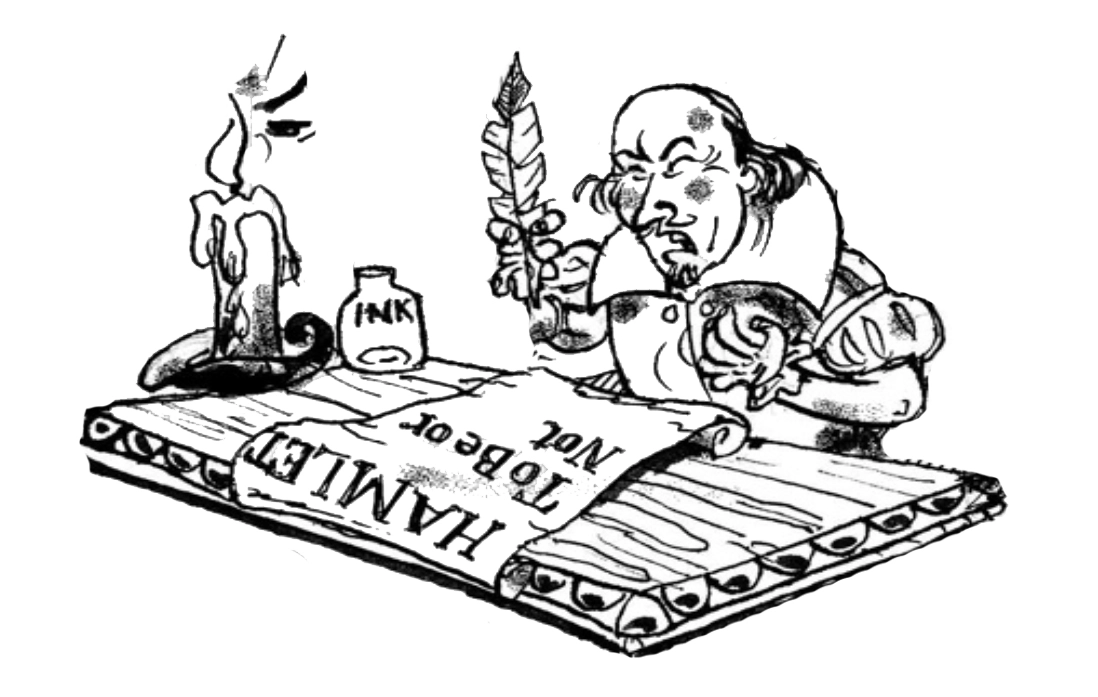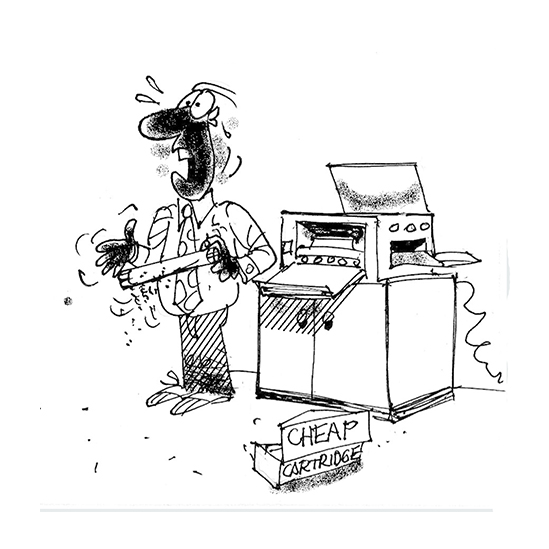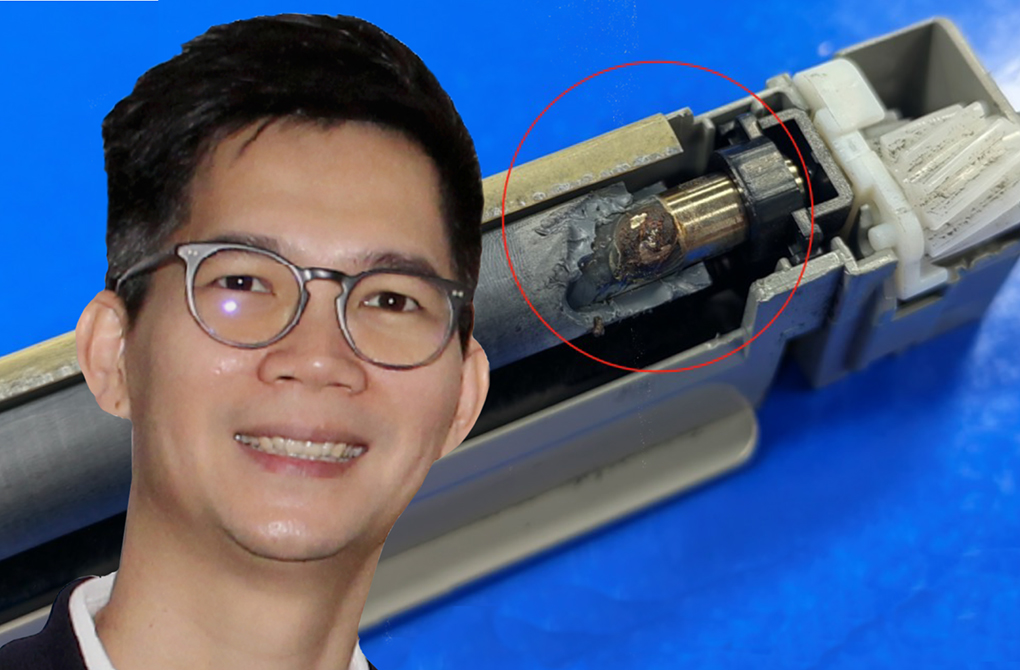OEM Firmware Strategies Could Violate US Anti-Trust Laws
OEM Firmware Strategies Could Violate US Anti-Trust Laws

“You want answers?! I want the Truth! You can’t handle the truth! “ Lieutenant Jessup, A few Good Men (1992)
“And get ready, ’cause this Sh** is about to get heavy” Eminem, lyrics from Without Me (2002)
Let me quote a few sentences from the FTC website on Antitrust laws.
- “The Sherman Act outlaws ‘every contract, combination, or conspiracy in restraint of trade,’ and any ‘monopolization, attempted monopolization, or conspiracy or combination to monopolize.’
- Long ago, the Supreme Court decided that the Sherman Act does not prohibit every restraint of trade, only those that are unreasonable.
- The Federal Trade Commission Act bans ‘unfair methods of competition’ and ‘unfair or deceptive acts or practices.’
- The penalties for violating the Sherman Act can be severe. Although most enforcement actions are civil, the Sherman Act is also a criminal law, and individuals and businesses that violate it may be prosecuted by the Department of Justice. Criminal prosecutions are typically limited to intentional and clear violations such as when competitors fix prices or rig bids. The Sherman Act imposes criminal penalties of up to $100 million for a corporation and $1 million for an individual, along with up to 10 years in prison.”
Do you want to know how this legislation plays out in the real world?
The Department of Justice (DOJ) is currently using these laws to sue Google for monopolizing Digital Advertising technologies.
Let me summarize it for you:
Basically, the DOJ is alleging Google is a monopoly platform and suppresses competing products and services from appearing highly (or at all) in its ranking and instead that they elevate their other products, services and companies instead.
Here is another case. The Department of Justice vs Apple. The DOJ is investigating if Apple’s policies for third-party apps on its devices unfairly favor its own products.
Let’s imagine a completely made-up scenario of what is going on:
Let’s pretend that every time a techno-giant (like Apple) issues a firmware update on its phones. As a result, all of the third-party apps on the phone you purchased stop working: apps like an alternative camera, editing software, maps and navigation programs, and fitness trackers. Apps that compete with the techno giants own apps.
Then imagine, every time a firmware update came out, your phone automatically installed it because the phone manufacturer decided it was better for you this way. They would claim that it provided security and protection against hacking. Never mind that for the last twenty years, every other techno giant followed the accepted industry standards of making firmware updates available to be downloaded and then you decided to install them. They must have realized that changing the paradigm was better for them for some reason….. Ahem ‘them’, I mean better for the customer, right?
But don’t worry, you can turn this feature off. It’s conveniently located in two or three places hidden deep inside the settings. It’s a fun challenge which is why there is no support or “how-to video instructions.” It could easily take you 20 minutes and you’ll only get it wrong a couple of times. Not frustrating at all.
And anyway – all of this is completely coincidental – not deceptive at all. Nor is it an unfair method of competition as outlawed by the Sherman Act. That’s what the army of lawyers said … Quite the opposite in fact: it’s totally reasonable that you can lose all the products you purchased if you want your Techno-Giant designed phone to be safe!
Then comes the final coup de grace—the ‘get out of jail free card.’ This is all the consumer’s fault: you agreed to all of this when you first purchased and set up your phone. It was clearly explained in legal speak in the 20-page user agreement that you scrolled past and clicked “OK’ to. You idiot…. You really should pay closer attention next time you buy something.
That’s the end of the pretend story. Well, the good news is that Apple isn’t doing any of these things that appear like obvious violations of the Sherman Act. Rather they are being investigated simply because the DOJ thinks they are just favoring their apps over competitors…..
But wait, what if you were to take this completely fictitious and made-up scenario and change the brand name from Techno-Giant to a printer OEM?
Nah, nope, it’s probably nothing. Let me go polish my tin foil hat….
Postscript:
If this article got you thinking and you want to act, here are a couple of options:
- If you work for or are closely aligned with a printer OEM and have evidence that their firmware strategy violates the US Anti-Trust laws, you can report it as a General Trade Practices complaint and be eligible for a Whistleblower. reward/percentage of the fines levied by DOJ: https://tcr.sec.gov/TcrExternalWeb/faces/pages/disclaimer.jspx
- You can learn more about US Anti-Trust laws and file a complaint with the Department of Justice:
https://www.justice.gov/atr/citizen-complaint-center#document
 Christian Pepper has been in the office printing industry since 1996 and has held management and executive positions within printer OEM and aftermarket hardware and consumable manufacturers. In all roles, he has worked with the reseller channel and says he is passionate about helping resellers increase their revenue and profitability.
Christian Pepper has been in the office printing industry since 1996 and has held management and executive positions within printer OEM and aftermarket hardware and consumable manufacturers. In all roles, he has worked with the reseller channel and says he is passionate about helping resellers increase their revenue and profitability.
Supported by a fantastic team of Engineering and Business Development professionals, he is now responsible for leading the Channel Partner Division at LD Products—the world’s largest online aftermarket consumables retailer.
Related:
- OEM Firmware Strategies Could Violate US Anti-Trust Laws
- Is All Fair in Love and War – Firmware updates
- LD Products’ Christian Pepper Argues for New-Built Cartridges
Comment:
Please add your comments below about this article, “OEM Firmware Strategies Could Violate US Anti-Trust Laws.”











Leave a Comment
Want to join the discussion?Feel free to contribute!